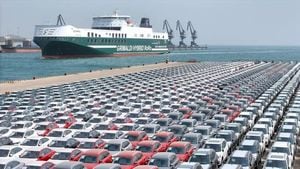The North Gauteng High Court has suspended the 31 March analogue switch-off deadline, marking yet another delay in South Africa's long-awaited transition to digital television. This decision comes amid widespread concerns regarding the reliability of state-sponsored set-top boxes (STBs) and the slow rollout of the digital migration project.
According to the Independent Communications Authority of South Africa (Icasa), many of the STBs distributed to indigent households are faulty, with numerous units manufactured back in 2015. These issues raise significant doubts about the viability of the transition to digital terrestrial television (DTT) as stakeholders express frustration over the slow pace of the rollout. "Reports indicated that a significant percentage of the installed STBs are faulty, exacerbated by a lack of software updates," Icasa stated in its Findings Document on the Review of Digital Migration Regulations.
Moreover, the government's subsidized STB registration and installation project has faced considerable setbacks, including Post Office closures, a non-operational online registration system, and limited public awareness about how to register for the decoders. Icasa highlighted that poor reception in some areas and a lack of commercial availability for STBs have also hindered the adoption of DTT.
The legal definition of indigent households has shifted, yet the eligibility criteria for STBs remain tied to the previous threshold of a combined household income of R3,500 per month. This outdated definition effectively excludes many households, as the current legal definition of indigent income is now R6,500, according to Stats SA.
The decision to suspend the analogue switch-off deadline was influenced by a legal bid from eMedia, Media Monitoring Africa, and the SOS Coalition, who argued that the deadline was set without adequate consultation. They warned that millions of South Africans would be left without access to broadcast television if the switch-off proceeded as planned. Judge Selby Baqwa, who presided over the case, emphasized the potential harm to the public, stating, "The harm is not just a temporary inconvenience. Each day without access to news, public service announcements, and educational programming results in irreversible loss of knowledge, awareness, and democratic participation."
In a related development, South African broadcaster Etv successfully petitioned the Gauteng High Court to postpone the analogue switch-off deadline, which had been set for 31 March 2025. The court ordered that the deadline be suspended, effectively interdicting Communications Minister Solly Malatsi from taking any steps to implement the switch-off of analogue signals and end dual illumination. Malatsi's counsel argued that sufficient consultation had taken place, but the court found otherwise.
Malatsi, who had imposed the 31 March deadline after concerns from a parliamentary committee that the previous deadline was unworkable, is now reviewing the court's judgment before deciding on the next steps. This latest ruling adds to the nearly 20 missed deadlines that have plagued South Africa's digital migration project since it began almost two decades ago.
The digital migration aims to free up valuable radio frequency spectrum currently occupied by analogue broadcasts, which consume significantly more spectrum than digital signals. Transitioning to digital broadcasting not only supports higher-quality audio and video but also enhances the capacity available to wireless telecommunication networks, potentially leading to reduced mobile data prices.
As South Africa navigates this complex transition, the path has been fraught with delays and challenges, including leadership changes within the ministry, pressure from broadcasters, and shifts in technical standards. The process has missed key deadlines set by the International Telecommunication Union, with the most recent deadline of 31 March 2025 now suspended.
Despite the setbacks, stakeholders remain hopeful that a resolution can be reached that balances the need for technological advancement with the realities faced by many South Africans. The ongoing legal and regulatory battles reflect the critical importance of ensuring that all citizens have access to essential broadcasting services.
As the country grapples with these issues, the future of digital migration remains uncertain, but the commitment to improving access to quality broadcasting services for all South Africans continues to drive the conversation forward.




